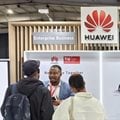






Heyink, co-founder at Yellow Solar, addressed the topic of turning work into a game. He recently travelled to Malawi where he found people still using candles in the evening. At the same time, solar systems exist that can be financed easily. The challenge in this case was location. You need good distributions networks and operations teams.
Still in Malawi, Heyink found capable, talented people to build his team. However, their productivity was very low. With further introspection, he discovered that his team were underperforming as they were distracted by the usual suspects – social media and online games.
He then found an outstanding person to lead the team. While the man worked extremely hard and always went the extra mile, he never got the credit he deserved. This juxtaposition of an under-performing team and over-working manager, with the result of low productivity represents what Heyink believes is the downside of the fixed salary system. As a result, the operations team were failing in their outputs.
Instead of taking a hardline, with a draconian approach, they took a different approach. Heyink turned to learning from games and identified the key elements of popular games: transparent and fair rules, short feedback loops, rewards based on skill and outputs, and a level of uncertainty and luck, with elements like bonuses and levels. Most importantly, good games allow players the agency to choose, come up with their own strategies and implement these. Looking at the best games in the world, Heyink saw that the rewards are financially meaningful. Rewards are public and give people status. Good games are social, they are competitive, enabling people to connect and collaborate.
Heyink then started to turn their work into a game, using these principles. They built a unified piece of software called Fifi, where everything in the organisation was captured. Next, they built a game called ‘Yellow Volts’, where team members would earn volts for completing tasks successfully. Each task was assigned a volt value or prize. Additional layers such as dashboards and leaderboards were added. Players were also rewarded for long term performance.
When they were sure that the game was successful, they made the bold move of abandoning the salary-based system and the employee handbook. Staff were be able to choose where to allocate their time, whether they played and for how long. They stepped out of the mandatory world and into the world of ‘opt in’. Emails no longer said “Could somebody please”. Instead they read “Volts available for…”.
Life changed for the management team, who stopped solving problems in the traditional ways. They observed their teams. Routines fell away. Market mechanisms became the focus. When things needed attention, they would alter the price of the volts. The staff started thinking like entrepreneurs. The yellow champions league became the peak of the excitement among their teams.
The results have been outstanding. They now have their team’s attention. They have gone from two hours of productivity to eight hours per day. Top performers have earned up to 300% more than they were earning before.
They have now connected 30,000 homes in Malawi to electricity, growing faster than the national grid. This has also improved the lives of the people in the areas tremendously. Turning work into a game has helped trigger incredible progress in a very short time.